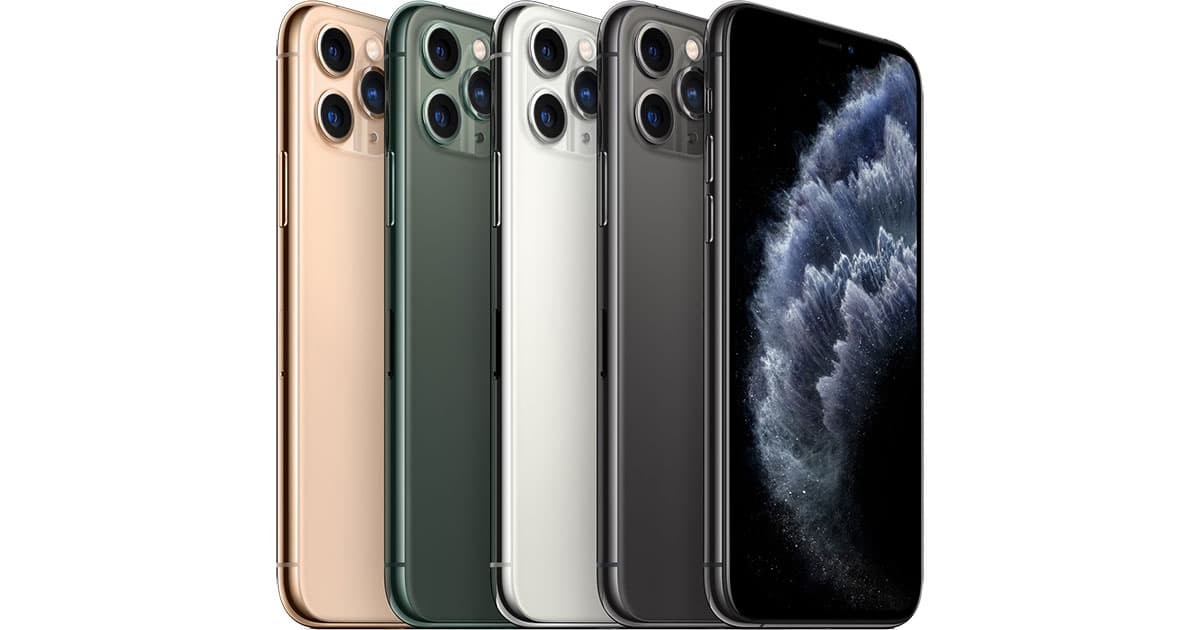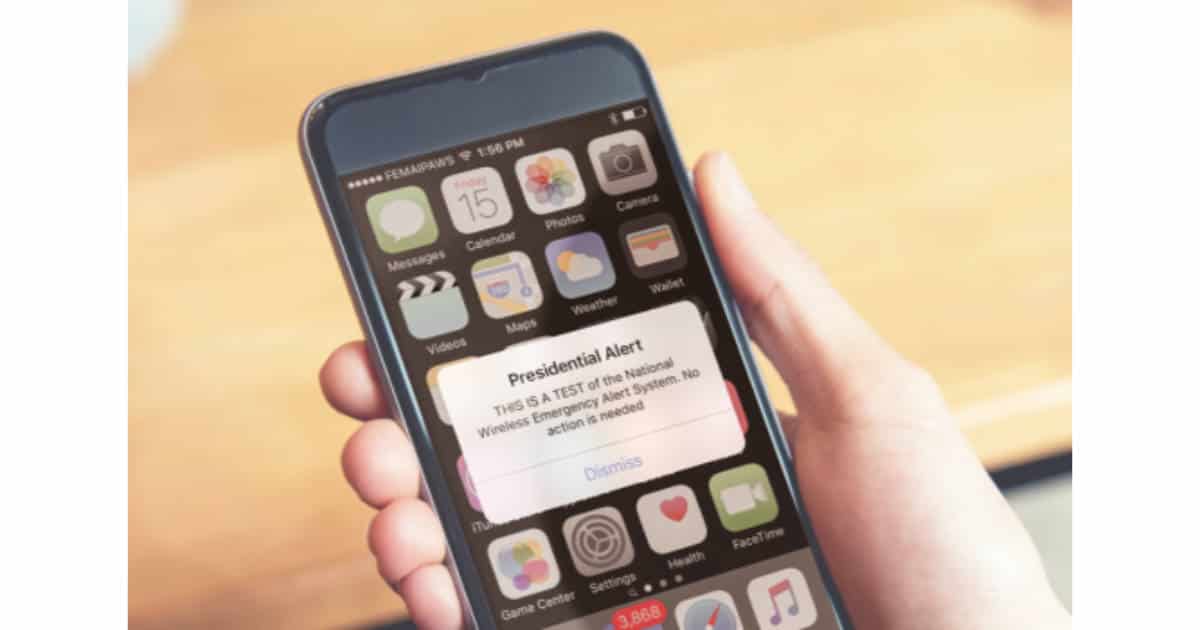After six years of collaboration the FCC has unlocked 3.5GHz spectrum, called the ‘OnGo’ band, for consumers.
FCC
FCC Urged to Do Something About SIM Swapping
Lawmakers are urging the FCC to do something about SIM swapping attacks, which have been responsible for the theft of tens of millions.
SIM swapping is an insidious form of mobile phone fraud that is often used to steal large amounts of cryptocurrencies and other items of value from victims. All too frequently, the scam involves bribing or tricking employees at mobile phone stores into seizing control of the target’s phone number and diverting all texts and phone calls to the attacker’s mobile device.
FCC Determines iPhone Radiation Doesn’t Exceed Safety Levels
The FCC has concluded that iPhone radiation levels are within safety limits, as opposed to a test run by The Chicago Tribune.
Broadband Companies Want FCC to Hide Data on Internet Speeds
Internet providers have successfully persuaded the FCC to remove unfavorable data that shows their advertised speeds are typically higher than their actual speeds.
Internet experts and former FCC officials said the setup gives the internet companies enormous leverage. “How can you go to the party who controls the information and say, ‘please give me information that may implicate you?’ ” said Tom Wheeler, a former FCC chairman who stepped down in January 2017.
Jim Warner, a retired network engineer who has helped advise the agency on the test for years, told the FCC in 2015 that the rules for providers were too lax. “It’s not much of a code of conduct,” Mr. Warner said.
So it seems these companies regularly lie about their internet speeds. Shocking, I know.
Ajit Pai's Proposal Would Limit Local Power to Regulate Internet
A proposal by FCC Chairman Ajit Pai would limit local authority to regulate internet access by killing fees and other rules.
Carriers Have Stopped Selling Location Data...We Think
Major carriers in the U.S., like AT&T, T-Mobile, and Verizon claim they’ve stopped selling user data. AT&T says it also wasn’t illegal.
FCC Wants Carriers to Automatically Block Robocalls By Default
The FCC is calling on carriers to start automatically blocking robocalls by default, for free. So far the agency this isn’t a requirement.
FCC Warns of Increase in One-Ring Robocalls
The FCC is warning of an increase in one-ring robocalls. Scammers call you once, the hope you’ll be curious enough to call back.
A long-running hustle that is reportedly seeing a resurgence involves a scammer calling someone and then hanging up after just a couple of seconds. The perpetrator hopes that curiosity will prompt the person to call back. But doing so will result in expensive per-minute charges, leaving the caller with an expensive bill if the scammer succeeds in keep them on the line for any length of time.
FCC Announces 5G Auction and Rural Broadband Fund
The Federal Communications Commission (FCC) announced a 5G auction, as well as a US$20.4 billion rural broadband fund.
Ajit Pai Calls Renewed Net Neutrality Efforts a Political Strategy
In a visit to New Jersey, FCC chairman Ajit Pai called Democrats’ net neutrality efforts a “political strategy.”
John Oliver Robocalls FCC to Protest Ineffective Rules
John Oliver is robocalling FCC commissioners like Ajit Pai. He argues that the rules are ineffective at stopping them.
“Hi FCC, this is John from customer service,” Oliver’s recorded voice says on the call. “Congratulations, you’ve just won a chance to lower robocalls in America today… robocalls are incredibly annoying, and the person who can stop them is you! Talk to you again in 90 minutes—here’s some bagpipe music.”
Democrats to Introduce 'Save the Internet Act' Wednesday
House Democrats will introduce a bill this Wednesday called Save the Internet Act in a bid to restore net neutrality rules.
In 2018 Americans Got 26.3B Robo Calls
Hiya, a spam-blocking app analyzed 450,000 of its users to figure out how big of a problem robo calls are.
AT&T Updates Smartphones With Misleading 5G Icon
AT&T is so excited for the rollout of 5G that it’s updating smartphones a bit early, with a misleading 5G icon.
AT&T has updated three smartphones from Samsung and LG to make them show 5G connectivity logos, even though none of them are capable of connecting to 5G networks…That “E” in the “5G” logo is supposed to tip you off that this isn’t real 5G — just some marketing nonsense. But there’s no way of knowing that just from looking at the logo.
As it turns out, the government didn’t create or ratify 5G. Neither the FCC nor FTC are regulating what the term means, so technically AT&T is still within the law by doing this. Doesn’t make it right, but it shows how absurd the 5G situation is.
US iPhones and Other Smartphones Can Now Receive EU Satellite Data
An FCC ruling means US iPhones and iPads will be allowed to receive European satellite navigation data for the first time.
Not Everyone Got the FEMA Presidential Alert
No matter what carrier you’re on, a wide range of people seemed to have been affected.
Here's What You Need to Know About the Presidential Alert Test
The Federal Emergency Management Agency and Federal Communications Commission are testing the Emergency Alert System and Wireless Emergency Alerts on Wednesday, October 3rd. Here’s what you need to know.
New MacBook Pro Love (Mostly) and FCC Reaches for New Low - ACM 470
Apple announced new MacBook Pros, and Bryan Chaffin and Jeff Gamet talk about what they like (processors and RAM) and what they don’t like (pricing on storage). They also dig into FCC Chairman Ajit Pai’s efforts to reach for a new low.
US Senate Forcing Vote to Restore Net Neutrality
FCC Chairman Ajit Pai’s dream to kill net neutrality could come to an end because the U.S. Senate is forcing a vote to restore the protections.
The Mysterious Case of the Gold iPhone X Photos Published by the FCC
These photos are part of an FCC filing for an “Apple Inc. Smartphone -E3161A,” and clearly show a gold-colored device where no such device currently exists.
What You Need to Know About the FCC Anti-Net Neutrality Changes - TMO Daily Observations 2018-02-22
John Martellaro joins Jeff Gamet to talk about the state of Net Neutrality now that the FCC’s “Restoring Internet Freedom” is in place, along with what we can expect to happen next.
FCC Kills Net Neutrality, Samsung's HomePod Competitor - TMO Daily Observations 2017-12-15
Dave Hamilton and John Martellaro join Jeff Gamet to discuss the FCC vote to end Net Neutrality, plus Samsung’s HomePod competitor.
Apple Root Password Bug, Ajit Pai’s Net Neutrality Fight, Listener Topics – ACM 349
Apple fixed its root access flaw in macOS High Sierra, but the whole incident is a corporate black eye for a company known for executing. Bryan and Jeff also talk about Ajit Pai’s latest embarrassing comments defending his plan to gut net neutrality. They also talk about some of the topics suggested by the Apple Context Machine Facebook Group.
Frothy Rants about Encryption and Net Neutrality, Plus Apple's AR Goggles - ACM 348
A listener sparks an intense rant from Bryan and Jeff about encryption and passcode-attempt-based device wipes, and FCC Chairman Ajit Pai gets them going on Net Neutrality. They cap the show with the observation that Apple’s AR goggle project appears to be back on.












